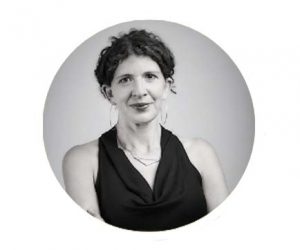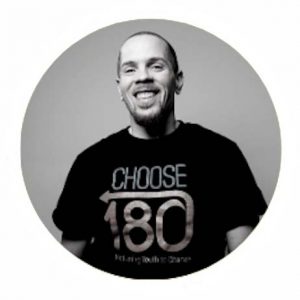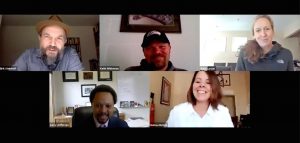The Evergreen State College is known for its innovative programs and nontraditional approach to learning. These offerings are focused on engaging students in profound issues and extending this focus to the community around them. One way Evergreen is sparking conversation on important topics is through a new series of public seminars, which are centered around a variety of issues and ways in which we as a society can address them. Evergreen is currently offering a series of public seminars focused on Reimagining Community Safety, with the third seminar, called “College in Prison,” being hosted online on Saturday May 15 from 12 p.m. to 1:30 p.m.

The public seminars were inspired by a bit of history that Evergreen faculty Eirik Steinhoff uncovered a few years ago. In 1972, early Evergreen faculty Richard Cellarius published an article co-authored with John Platt called “Councils of Urgent Studies,” which called for the establishment of nongovernmental panels “to focus and legitimize research on solutions to our major crises.” “This blew my mind,” Eirik shares. “The need for this kind of action-oriented community based interdisciplinary inquiry has never been more pressing, and it is also part of Evergreen’s DNA.” The idea behind the councils is that these urgent issues required deliberate and collaborative discussions and efforts to promote change, which is exactly what the public seminars aim to do.
The current series was inspired by this article and has featured two public seminars this spring. The first one, “A Public Seminar on Public Safety,” was hosted on April 23 and focused on alternatives to policing and incarceration in Olympia and beyond. It featured Olympia Police Department’s Familiar Faces Program and featured four Evergreen alumni: Larry Jefferson, Anne Larsen, Melissa McKee, and Keith Whiteman. The speakers discussed their work in developing an alternative model to responding to community issues without the police. “It requires us to unlearn and rethink of how we respond to community crisis,” Eirik says.

The second one, “A Public Seminar on Transformative Responses to Harm,” was hosted on April 28 and featured organizations Common Justice in New York and Choose 180 in Seattle, which are both focused on alternatives to incarceration. Speakers Shaka Colon, Sean Goode, and Danielle Sered discussed their restorative justice practices to provide insight into how alternatives to incarceration can be used to reimagine the criminal justice system.
The third and upcoming seminar, “College in Prison,” will be hosted virtually on May 15. This seminar will be centered around a recent documentary about the Bard Prison Initiative and Evergreen-Tacoma faculty Gilda Sheppard’s new film “Since I Been Down,” among others. “This will be a community conversation about how college behind bars concretely contributes to community safety,” Eirik shares. With the restoration of Pell Grants to incarcerated individuals, the expansion of college in prison is an important topic to bring into our community. To be part of this integral discussion, register for your spot today. The films to be discussed are listed at this “virtual screening room.”
Deeper Conversations
In addition to being available to the public, the seminars are jointly offered as a course through Evergreen. Currently, the class has 45 students enrolled that are seeking to continue the conversation and dig deeper. “The goal of the class is to contribute to community and to demonstrate Evergreen as an institution in the community as a public service,” Eirik shares. These classes have proven to provoke thought and invoke discussion about these important issues, and students are coming away from them with a completely new perspective on a variety of things.

“One of the most wonderful things happened at the end of last quarter,” Eirik says. “We did a reflection and one student said to the class that the class should be retitled as ‘Reimagining Community,’ and everyone agreed. I wanted to figure out why this made sense. Another student said that by dropping the word ‘safety’ we may be able to sidestep some of the ways in which safety has been weaponized against communities of color and poverty. Maybe the first step is to drop that word.” The seminars provide a way for this type of discussion to grow and flourish, and hopefully the impact will spread into the community.
The most important part of the seminars is that they are being shared with the community as a public service. So far, the seminar series has featured 500 attendees including students, staff, faculty and community members. “This is a demonstration of a huge need being filled,” Eirik says. People are yearning for this kind of conversation, which is why Evergreen has made it available to everyone in the community wishing to participate. Without this open availability, discussion would only reach so far.
It is through committed and conscious efforts of us as a community that we can incite change. Evergreen is providing the perfect platform to feature diverse voices and backgrounds to address the issues of our time and adapt to create a better future.
To learn more about The Evergreen State College’s innovative programs, please visit The Evergreen State College website.
Sponsored
















































